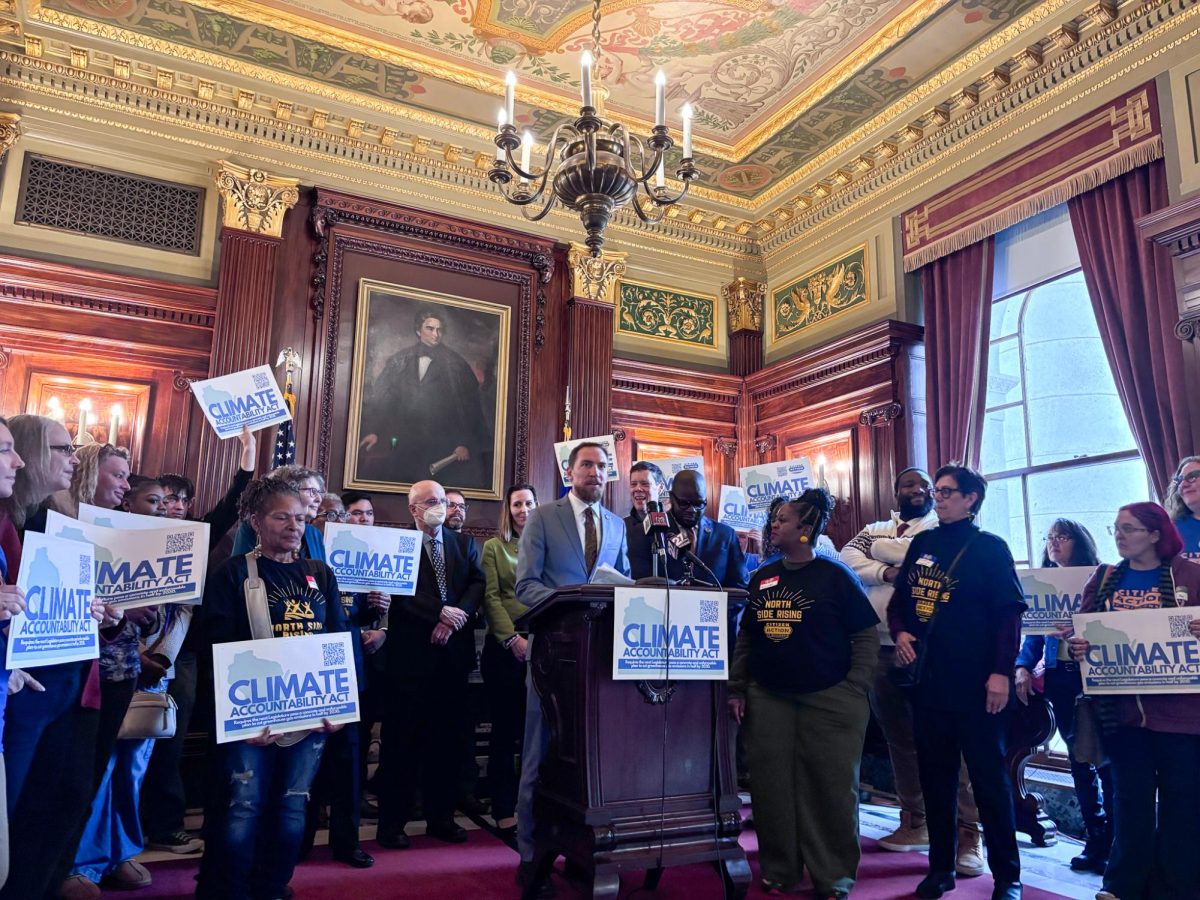Wisconsin lawmakers, alongside social justice and environmental groups, introduced the Climate Accountability Act at the State Capitol Tuesday.
The bill marks the state’s first legislation aimed at mandating greenhouse gas reductions, according to the Climate Accountability Act.
Sponsored by State Rep. Supreme Moore Omokunde and State Sen. Chris Larson, the legislation sets ambitious climate goals. It calls for a 52% reduction in carbon emissions by 2030 and full carbon neutrality by 2050.
At a press conference unveiling the bill, Larson said that Wisconsin’s reliance on coal comes with many economic and health consequences.
“It’s not just that we are spending money on coal, because by the state, we have no coal mines in the state of Wisconsin,” Larson said. “So every dollar we’re spending on coal leaves the state forever…those billions of dollars will never come back.”
Larson cited research showing that living within 21 miles of a coal plant can damage respiratory health as much as five years of smoking cigarettes.
The proposed legislation responds to growing concerns over climate change’s impact on public health, economic sustainability and environmental justice.
Sen. Melissa Ratcliff stressed the importance of taking action for future generations.
“They deserve to grow up breathing clean air, drinking safe water and experiencing the beauty of Wisconsin’s natural landscapes,” Ratcliff said. “If we don’t act, they will pay the price.”
Ratcliff also said the bill prioritizes equity and economic growth, envisioning a future where clean energy jobs are abundant and communities are resilient.
The bill has garnered support from major advocacy groups, including 350 Wisconsin, the Sierra Club Wisconsin Chapter, Healthy Climate Wisconsin and the Union of Concerned Scientists, according to Ratcliff.
Executive Director of Citizen Action of Wisconsin Robert Kraig said Wisconsin’s role in climate action is a democratic responsibility.
“The fact that the federal government took a step back does not reduce the state’s responsibility — it increases it,” Kraig said. “States have to pick up the slack and become the laboratories of making democracy work, because democracy succeeds and thrives if it solves our biggest problems.”
Supporters of the bill argue that Wisconsin has a history of leading progressive policies, citing past innovations such as workers’ compensation and unemployment insurance. They believe this legislation continues that tradition, positioning Wisconsin as a leader in addressing climate change, according to Kraig.
The Climate Accountability Act currently has 14 co-sponsors in the Assembly and four in the Senate. While its future in the legislature remains uncertain, its supporters hope it will spark a critical debate on Wisconsin’s role in combating climate change.




